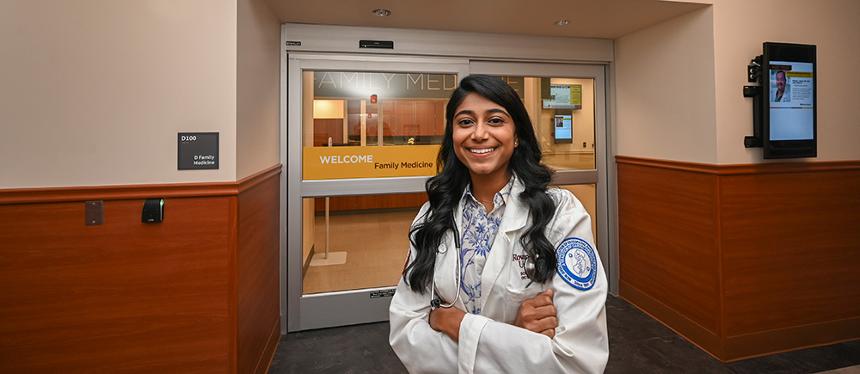Healthcare Management and Administration
Healthcare Management and Administration
Bachelor of Science in Healthcare Management and Administration
Required Credits: 120
Format: Full-time or Part-time
Partnerships: This program is available through the 3+1 Partnership Program with RCBC
YOU DON'T HAVE TO BE A DOCTOR OR NURSE TO HAVE A POSITIVE IMPACT ON PATIENTS.
Why choose a career in Healthcare Management & Administration? This field stands out as one of the fastest-growing careers, as highlighted by the Bureau of Labor Statistics. It provides professionals with the unique opportunity to contribute to the daily operations of healthcare facilities and institutions.
Healthcare managers and administrators oversee all of the elements of a healthcare facility helping to maintain compliance, budgets, staffing, records, etc. The degree offers graduates a meaningful way to enhance their career opportunities in the healthcare industry without being a doctor or nurse. The program is tailored to meet the growing challenges of an in-demand profession by placing an emphasis on competencies such as leadership, critical thinking, marketing, finance, strategic and operations management, and quality control.
Find additional program information here.
A degree in Healthcare Management and Adminstration opens up a wide range of career paths you can take, including:
- Accounting and Financial Reporting
- Finance and Business Strategy
- Legal and Regulatory Compliance
- Operations Management
- Medical Records and Administration
- Human Resources
- Health Information Systems
- Social and Community Service Managers
- Training and Development Managers
- Administrative Services Managers
- Medical Practice Manager
- Health Insurance Specialist
Program Advisors
Charles C Stewart III | stewartc@rowan.edu | (856) 256-5159 | Manages HCM Internships
Marren Magee | mageem@rowan.edu | (856) 256-4980 | All Students
Program Resources
Program Guide
See the Healthcare Management and Administration program guide(pdf) for a complete listing of courses.
Internship
The required internship offers students experiential learning that combines knowledge and theory learned in the classroom with real world healthcare experiences. Resources: Internship Requirements, Internship Intake Form.
Visit our internship page for more information.
Minors and Certificates of Undergraduate Study
Minors offer a concentrated area of study, encompassing 18 to 29 credit hours of both lower and upper-level undergraduate courses. A minor constitutes a cohesive area of study associated with or drawn from a major or discipline. Alternatively, it may include courses from various programs across different departments or colleges. For more information and a complete list of Minors click here.
Certificates of Undergraduate Study (CUGS) provide a credential for students completing an area of study totaling 12 to 17 credit hours. Upon completion, the CUGS is acknowledged on students' transcripts, designed to complement their other areas of study. A CUGS can be a great option to help students explore academic areas of interest and prepare for their professional futures. For more information and a complete list of CUGS click here
Students are encouraged to inform and work with their program advisor in selecting minors and CUGS that should be relevant to their professional goals.


